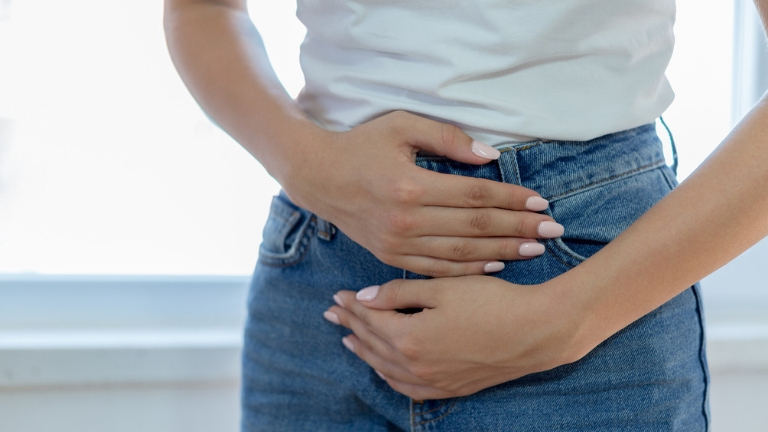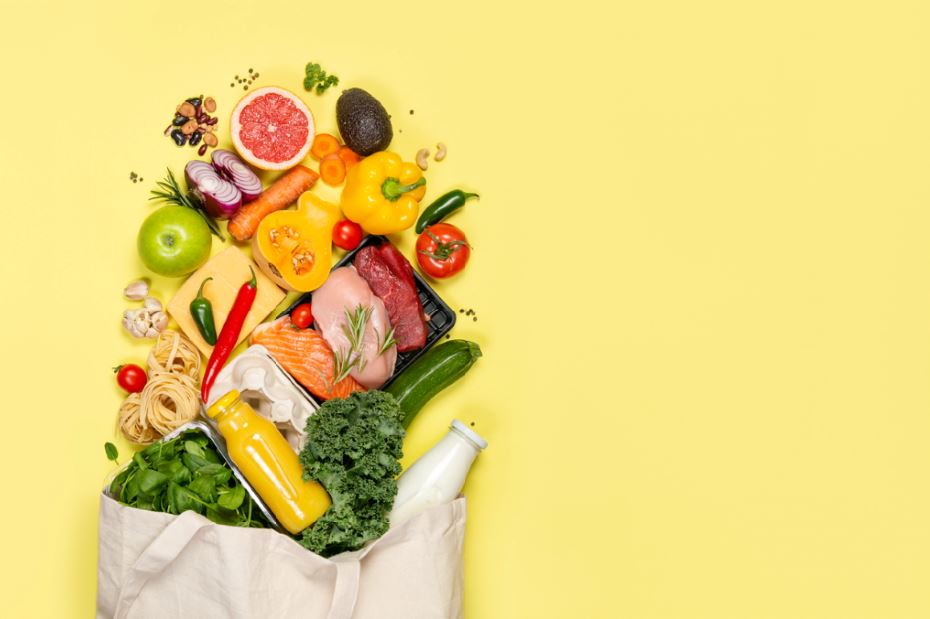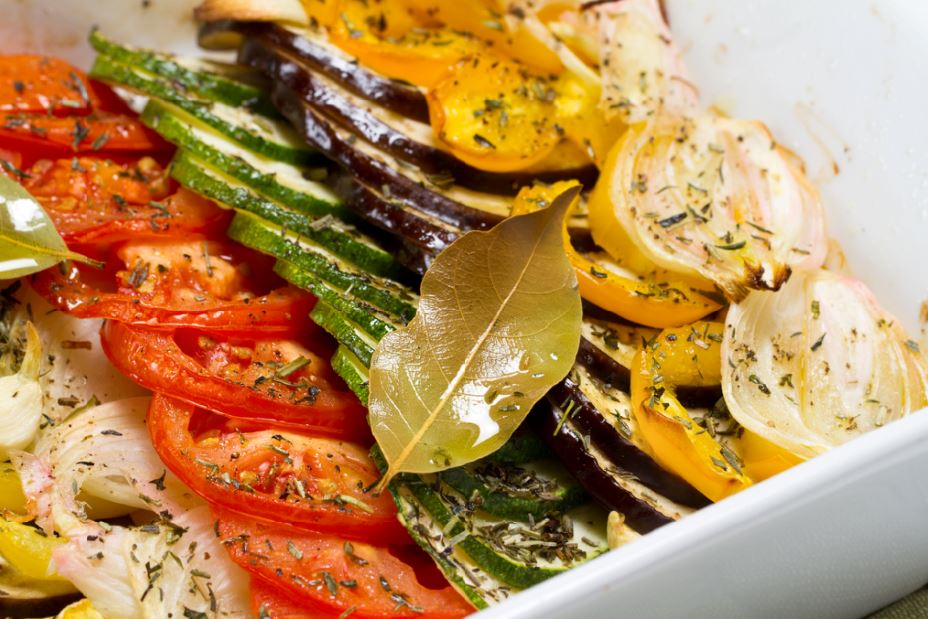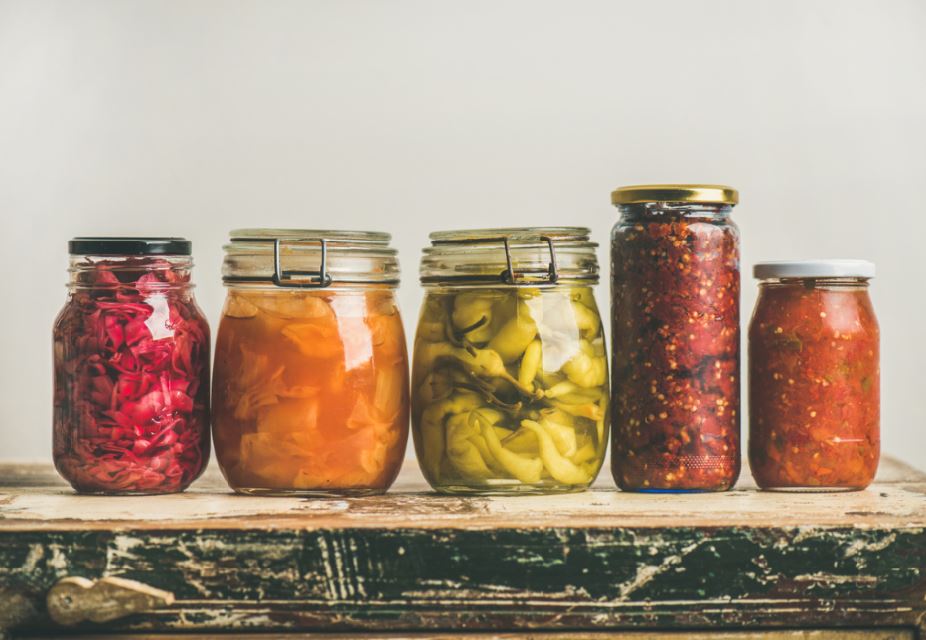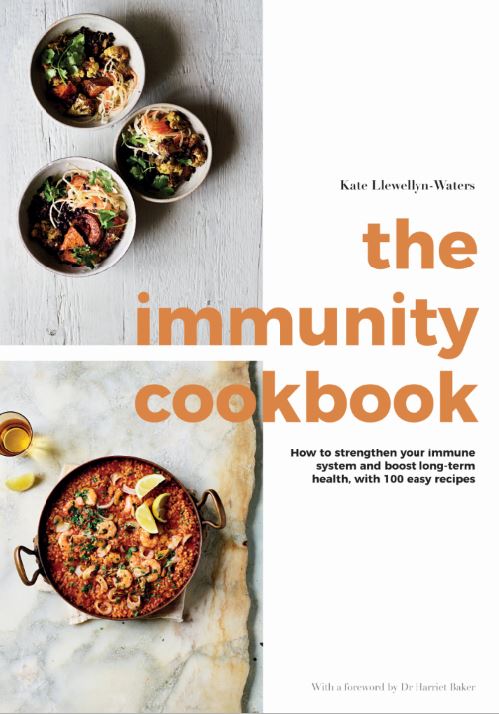Did you know that 70 percent of our immune system is in our gut? A healthy gut equals a healthy life. Award-winning nutritionist Kate Llewellyn-Waters shares nine top tips for optimum gut health
Exercise, stress, and sleep all play a vital role in our overall health, but one of the most important factors is our diet.
A nutrient-dense diet helps to reduce chronic inflammation, which is linked to diabetes, cancer, dementia and depression, as well as ensuring a healthy balance of beneficial bacteria in our gut.
70 percent of our immune system is in our gut
Given that 70 percent of our immune system is in our gut, optimal gut health is essential. Plus, it is our ‘good’ gut bacteria, which are our immune system’s allies.
By making the right nutrition choices, exercising appropriately, managing stress and ensuring quality-sleep and sufficient sun exposure, we can all achieve strong and balanced gut health.
Here are my top tips for optimum gut health:
Gut Health Tip #1 Diversity is key – aim to eat 25 to 30 different veggies a week
We need lots of variety when it comes to gut bacteria, so it is important to make sure our guts have as many different bacteria species as possible.
This can be achieved by eating a diverse and balanced diet, packed with nutrient-dense whole-foods.
Specific nutrients including Vitamin A (found in foods such as carrots, sweet potatoes and mango), vitamin D (food sources include oily fish and certain mushrooms), and also the mineral zinc (found in shellfish, poultry and beans) are very important for a healthy gut barrier.
Low vitamin D negatively alters the gut microbiome
Low vitamin D negatively alters the gut microbiome (the ‘microbiome’ refers to all the microorganisms, such as bacteria, viruses and fungi, and their genes), and the integrity of the gut barrier, which we definitely do not want.
Whilst vitamin D deficiency is a global health problem, many people are unaware that they may have a deficiency.
But, for most individuals, you can get enough vitamin D by exposing your arms and face for ten to 15 minutes daily, or by eating oily fish such as salmon or mackerel, or some vitamin-D rich mushrooms.
We know that those who eat a larger number of varied plant-based foods have more diverse and healthier gut microbiomes.
So, aim for at least five portions of veg and two portions of fruit a day (25 to 30 different veggies a week), and try to include lots of different coloured veg and fruit, as variety is vital for good gut health.
In addition, fruit and veg are packed with phytochemicals, which are compounds that have antioxidant, antibacterial, antiviral, and anti-inflammatory properties.
You can find these healthful nutrients in red, purple, yellow, orange, and green vegetables. So, include lots of these different coloured foods in your diet, and your gut will thank you.
Gut Health Tip #2 Cook with herbs and spices
Herbs and spices are also high in these potent phytochemicals.
Including them in your daily diet not only makes your meals more exciting, but since they have antioxidant and anti-inflammatory properties, they can help to combat damaging inflammation and promote health.
Cinnamon is great added to porridge, as well as curries, and studies have shown it may help fight inflammation and oxidative stress, as well as helping to protect against harmful bacteria.
Turmeric is another spice I use daily, and studies have shown that turmeric can ease inflammation, protect our gut lining and inhibit the growth of harmful pathogens.
I also love to use ginger as it is ultra-versatile and has been reported to soothe the digestive tract and gut lining.
Gut Health Tip #3 Eat foods rich in prebiotic fibre
In the UK, an incredible 90 percent of us don’t eat enough fibre, but making sure you eat enough fibre (around 30g a day) is crucial, because the soluble fibre found in foods such as apples, bananas or cauliflower ‘feed’ our gut bacteria, which helps them to thrive.
As we know, by looking after and ‘feeding’ our gut bacteria, we are also strengthening and nourishing our immune system.
Prebiotic fibre also helps our gut bacteria to make certain nutrients, such as butyrate, for the cells in the large intestine, which then promotes a healthier and balanced GI tract.
Artichokes, chickpeas, and lentils are also good sources of prebiotic fibr
This powerful fibre has also been shown to switch immune cells from pro-inflammatory to anti-inflammatory, which help us to heal quicker from infection.
Artichokes, chickpeas, and lentils are also good sources of prebiotic fibre. Try and aim for 30g a day – you’ll find 4g in an apple, 3g in a banana and 9g in half a cup (50g) of rolled oats.
Gut Health Tip #4 Eat more fermented foods
As well as increasing your intake of foods rich in prebiotic fibre, make sure you include fermented foods in your diet, which contain probiotic bacteria.
Probiotic bacteria, found in certain foods, provide numerous health benefits, including promoting digestive health and supporting our immunity.
Probiotic-rich foods include fermented foods, such as sauerkraut, live natural yogurt, cheese, kefir and kimchi.
Gut Health Tip #5 Get enough glutamine
This is the most abundant amino acid (building block of protein) in the body, and may encourage immune-cell activity in the gut, help prevent infection and inflammation, and heal the gut lining.
Try and include some of these food sources of glutamine in your diet: beetroot, spinach, tofu, lentils, bone broth, chicken and fish
Gut Health Tip #6 Eat food in its natural state
Aim to eat food in its natural and unprocessed state – eating real food is hugely beneficial for gut health, as well as overall health. Ready meals tend to be higher in sugar and fat, and lower in fibre, which negatively impacts our gut health.
Also, levels of nutrients in fruit and vegetables may decrease after they are harvested, and further processing like cutting and peeling can decrease this even more.
And, if you can opt for organic produce, since organic food has a more diverse bacteria population, compared with that which is conventionally grown.
Gut Health Tip #7 Consider intermittent fasting
While the field is still in its infancy, an emerging body of evidence suggests beneficial effects of fasting on gut health through increased bacterial diversity, abundance and resilience.
The major bacteria that loves fasting is called Akkermansia. This bacteria thrives when you fast, feeding off your gut lining and ‘cleaning’ it, which has been shown to increase the diversity of the other bacterial species.
Nonetheless, again it is about balance, as too long a time without eating Akkermansia has been reported to damage the gut lining. Like us, our gut bacteria also function on a daily rhythm – their powerful circadian rhythm is key for our immunity, and is enhanced by fasting.
Like us, our gut bacteria also function on a daily rhythm
So, whilst current research is still in its infancy, findings of current human studies suggest that intermittent fasting may play a potentially beneficial role in altering the gut bacteria, leading to beneficial changes in bacteria composition and diversity.
If you are new to intermittent fasting and keen to give it a go, I suggest starting with time-restricted feeding (TRF), where you fast for 16 hours and eat in an 8-hour window.
You are able to drink water, herbal teas and black coffee during the fasting period. If you can’t do the 16 hours initially, work up to it, starting with 12 hours (say, 7pm-7am), then build up to 14 hours (7pm-9am), and then the full 16 hours (7pm-11am).
Gut Health Tip #8 Avoid alcohol where possible
When it comes to gut health, alcohol (sorry!) can wreak havoc, and gut dysbiosis, which is when our gut microbiota and microbiome is imbalanced (mainly due to the increasing presence of harmful bacteria) is more common in those who drink regularly.
In particular, spirits, have been shown to reduce the number of ‘good’ gut bacteria.
However, there is some good news – red wine, has been reported to increase the abundance of beneficial bacteria associated with good gut health, whilst reducing the number of harmful gut bacteria.
red wine, has been reported to increase the abundance of beneficial bacteria
It is also advisable to limit refined sugar, as a high-sugar diet is harmful to our gut microbiomes.
If we consume a lot of sugar, the bacteria we don’t want more of are likely to multiply, and lead to dysbiosis.
Gut Health Tip #9 Get moving
It is important to mention the role of exercise on our gut health, as it can be very beneficial for gut health.
Studies have confirmed that exercise increases gut bacteria diversity, reduces infection and inflammation, whilst enhancing immune function and promoting recovery.
However, just as in our diets, when it comes to exercise we want balance, since too much exercise has been show to result in temporary gut damage and impaired gut function.
Focus on regular moderate-intensity exercise such as 30 minutes of brisk walking, which has been shown to support gut health and immunity.
Kate Llewellyn-Waters an award-winning MSc. qualified nutritionist, researcher and author of The Immunity Cookbook.
For the last 20 years, Kate has been offering nutrition advice to individuals looking to live a healthier and happier lifestyle, specialising in weight management, gut health and women’s health.
Kate runs her nutrition clinic from a practice in Harley Street, and The Lansdown Clinic in Bath.
Additionally, as a nutrition scientist, Kate has had numerous academic articles published in leading nutrition journals. Her most recently published article, in the journal Nutrition and Healthy Aging, looks at the role of Intermittent Fasting on gut health – ‘Intermittent fasting – a potential approach to modulate the gut microbiota in humans?’
The Immunity Cookbook by Kate Llewellyn-Waters (Quadrille, £20) available to buy on Amazon.
More Healthista Content:
Can’t keep your plants alive? How to garden for someone who kills everything
5 reasons you keep getting a UTI – including your sex position
New mum? Leading doctor reveals 6 post-delivery care tips for your lady parts
Can vitamin D help fight Covid-19? Here’s what you need to know
Do pets reduce our stress? 12 ways your pet is boosting your wellbeing
Like this article? Sign up to our newsletter to get more articles like this delivered straight to your inbox.



